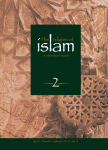The Religion Of Islam vol.2

Chapter XXI -The Traditions
Second Source of Jurisprudence
There are three kinds of Sunna:The traditions of the Prophet better known as Sunna or hadith is the second and undoubtedly secondary source. from which the teachings of Islam are drawn. Sunna, literally means a way or rule or manner or example of acting, or mode of life; and hadîth, a saying conveyed to man either through hearing or through revelation, ([1]). In Sunna indicates the doings, and hadîth the sayings of the Prophet, but, in effect, both cover the same ground and are applicable to his actions, practices, and sayings, hadîth being the narration record of the Sunna but containing in addition, various prophetical and historical elements
(1) it may be a saying of the Prophet which has a hearing on a religious object;
(2) it may be an action or practice of his, or
(3) it may be his silent approval of the action or practice of some person. We shall now consider to what extent can teachings of Islam, its principles and it laws, be drawn from this source. The Koran generally deals with the broad principles or essentials of religion going into details in care cases. The details were generally supplied by the Prophet himself, either by showing in his practice how an injunction shall be carried out, or by giving explanation in words.
The snnna or hadîth of the Prophet was a thing whereof the need had been felt after his death and which was much needed in his lifetime. The two most important institutions of Islam for instance, are prayer and zakat (alms-giving); yet when injunctions relating to prayer and zakat were delivered and they were repeatedly met with both in Mecca and Medina revelations, no details were supplied "Keep up prayer" is the Koranic injunction, and it was the Prophet himself who by his own action gave the details of the service. "Pay the alms is again an injunction frequently repeated in the Holy Koran, yet it was the Prophet who gave the rules and regulations for its payment and collection. These are but two examples; but since Islam covered the whole sphere of human activities; hundreds of points had to be explained by the Prophet by his example in action and word, while on the moral side, his was the pattern which every Muslim was required to follow.
"Verily in the messenger of God you have a good example to follow' (XXXIII~21). The man, therefore, who embraced Islam stood in need of both the Holy Koran and the Sunna.
([1]) Hence the Holy Quran is also spoken of as "hadîth" (18; 5; 39; 23). The word "sunna" is used in the Holy Quran as a general sense, meaning a way or rule. Thus 'sunnat al-AwwaIin' (18; 38; 15; 13; 18; 55; 55; 43) means the way or example' of the former generations and is frequently used in the Holy Quran as signifying God’s way of dealing with people, which is also spoken of as 'sunnat-Allah' or God's way of dealing with people.
